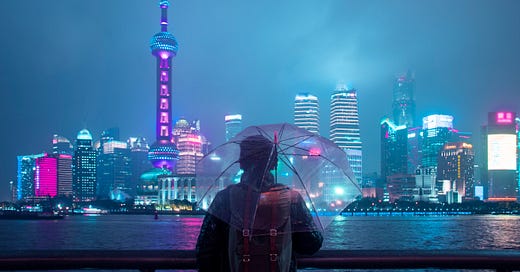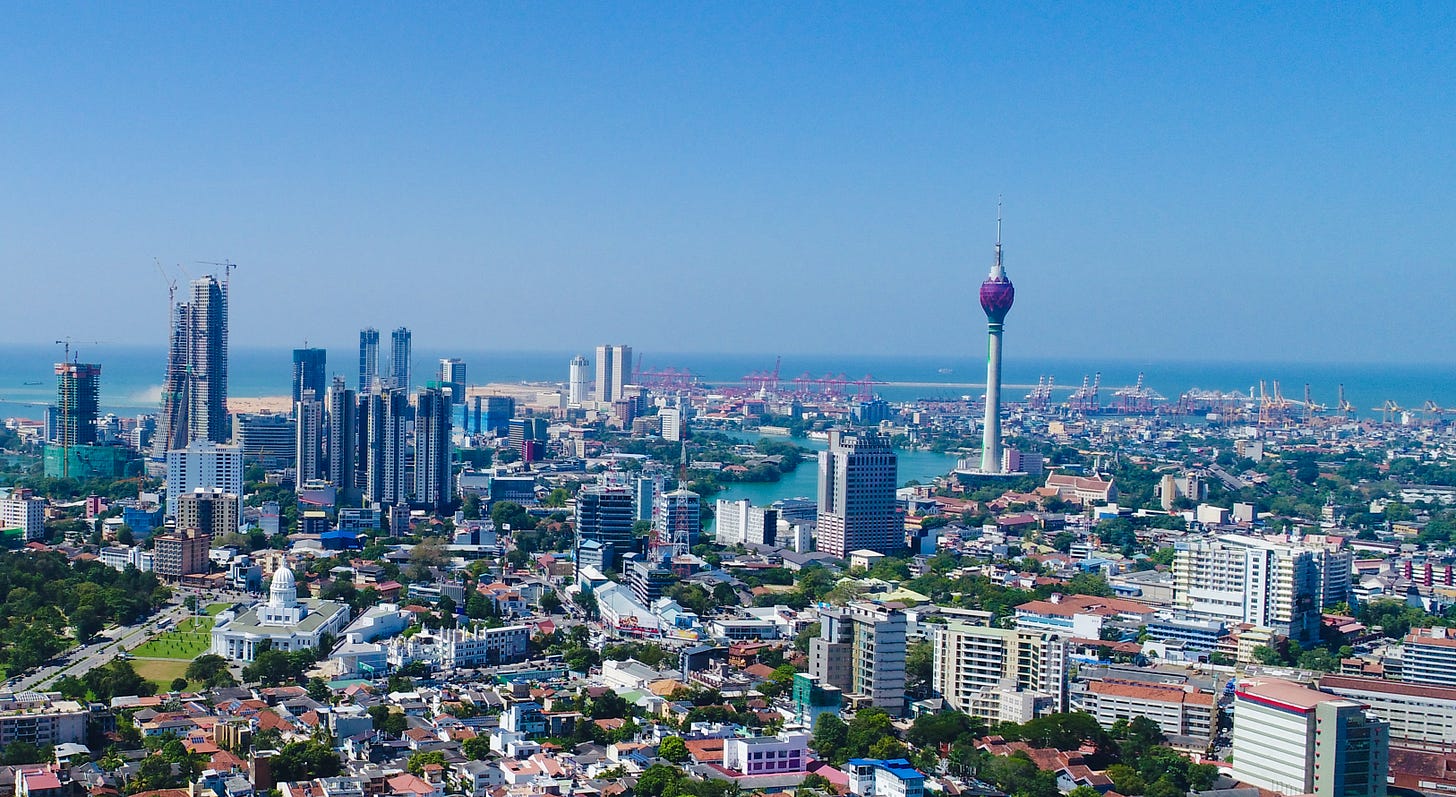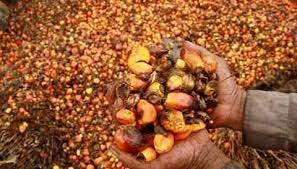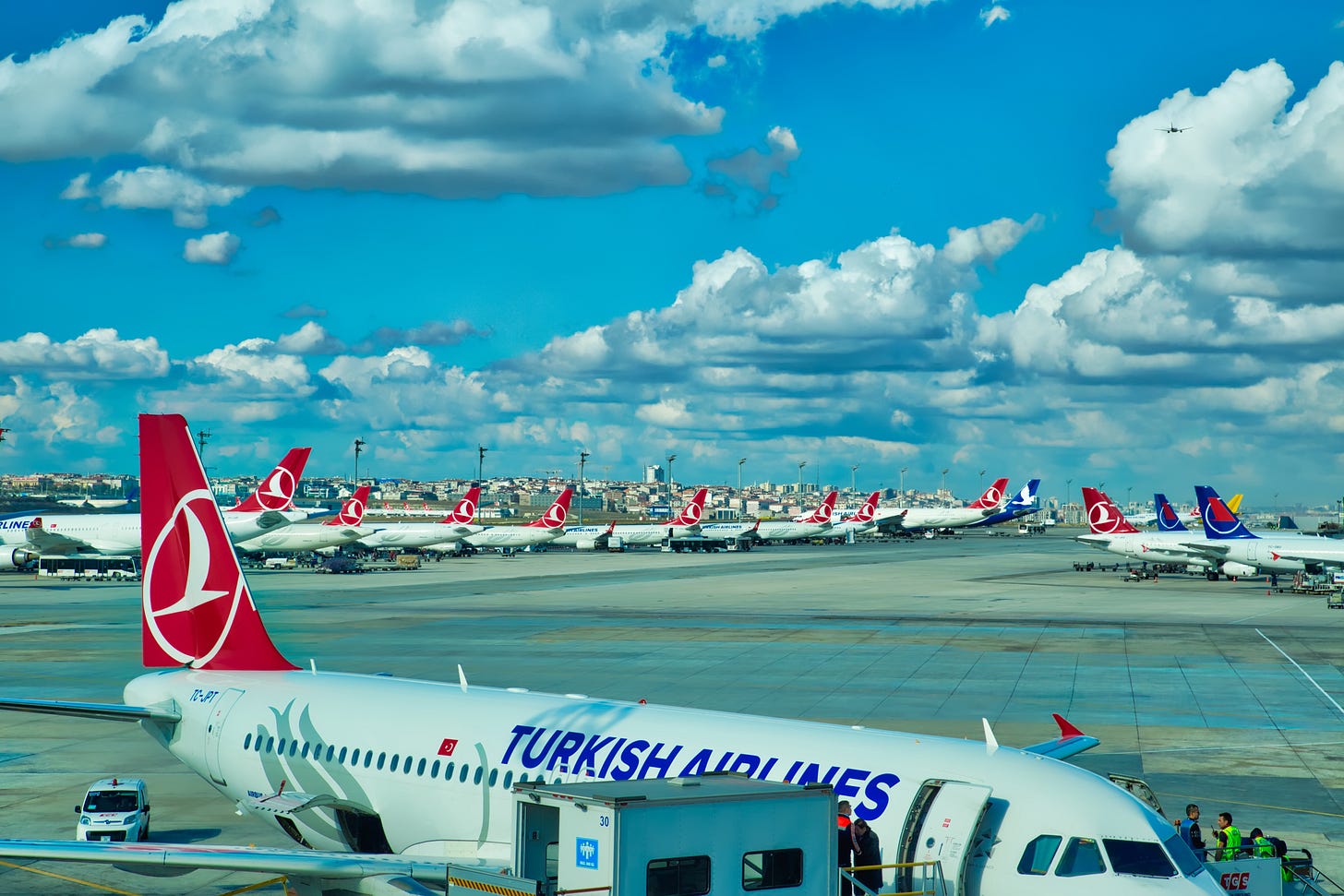Emerging Markets Daily - April 25
Oil Dips Below $98 on China Lockdown, Putin Abandons Peace Talks, Sri Lanka on Tap for WB and IMF Aid, Palm Oil Soars on Indonesia Export Ban, Turkey Rising in Africa
Oil Price Sinks Below $98 As China’s Lockdowns Imperil Demand Outlook
Bloomberg
“Oil fell at the start of the week on concerns that a spreading Covid-19 outbreak in China will hit consumption even further.”
“West Texas Intermediate futures slid as much as 5.4% to amid a rout in stocks and other raw materials. Rising coronavirus cases in Beijing sparked jitters about an unprecedented lockdown of the capital, while Shanghai reported record daily deaths over the weekend. The world’s biggest crude importer is heading for the worst oil demand shock since the early days of the pandemic.”
“China’s travails with Covid-19 add another source of volatility to an oil market that’s been buffeted by Russia’s invasion of Ukraine. The war has fanned inflation, and the European Union is discussing measures to restrict oil imports from Russia.”
“China has implemented lockdowns in a number of cities as it pursues a Covid Zero strategy. Residents in a Beijing district were told to submit to three days of tests starting Monday in a bid to curb cases. As the risks to consumption escalate, money managers have turned the least bullish on WTI since April 2020, when prices turned negative.”
“The market is poised for additional supply, adding to bearish signs. Libya is expected to resume output from shuttered fields in the coming days, while the CPC oil terminal on Russia’s Black Sea coast has resumed regular operations after one of two moorings damaged in a storm was repaired.” Bloomberg reports.
Vladimir Putin Abandons Hopes for Peace Deal, Shifts to Land Grab Strategy
Financial Times
”Vladimir Putin has lost interest in diplomatic efforts to end his war with Ukraine and instead appears set on seizing as much territory as possible, according to three people briefed on conversations with the Russian president.”
“Putin, who was seriously considering a peace deal with Ukraine after Russia suffered battlefield setbacks last month, has told people involved in trying to end the conflict that he sees no prospects for a settlement.”
“‘Putin sincerely believes in the nonsense he hears on [Russian] television and he wants to win big,’ said a person briefed on the talks...Putin said peace efforts were at a ‘dead end’ and was infuriated after Ukraine sank the Moskva, the flagship of Russia’s Black Sea fleet, according to two people. ‘There was hope for a deal. Putin was going back and forth. He needs to find a way to come out of this a winner,’ one of the people said.” The FT reports.
World Bank Readies Sri Lanka Aid Package, IMF Continues Talks on Support
Financial Express (Sri Lanka)
“The International Monetary Fund said on Saturday it held ‘fruitful technical discussions’ with Sri Lanka on its loan request, while the World Bank said it was preparing an emergency aid package for the crisis-stricken country, Reuters reports.”
“Sri Lanka, an island country of 22 million people, is struggling to pay for imports amid a crushing debt crisis and sharp drop in foreign exchange reserves that has fueled soaring inflation. Prolonged power cuts and shortages of fuel, food and medicines have sparked nationwide protests.”
“Sri Lankan Finance Minister Ali Sabry has been in Washington this week talking to the IMF, the World Bank, India and others about financing help for his country, which has suspended payments on portions of its $51 billion in external debt.”
“The World Bank's emergency response package includes $10 million to be made immediately available for the purchase of essential medicines, funds shifted from its ongoing COVID-19 health preparedness project, a World Bank spokesperson said.”
“The global lender, which along with the IMF held its spring meetings this week, did not provide a total value for its package, but Sabry said on Friday that about $500 million in aid was being considered.”
“The World Bank spokesperson said the package would leverage existing bank-financed projects and repurpose funds to quickly provide medicines, meals for school children and cash transfers for poor and vulnerable households.” Financial Express reports.
Palm Oil Soars on Indonesia Ban in Risk to Global Food Inflation
Bloomberg
“Palm oil rallied after top producer Indonesia said it will ban all exports of cooking oil, a move that threatens to worsen global food inflation.”
“Futures for July delivery rose as much as 6% to 6,738 ringgit ($1,550) a ton in Kuala Lumpur, the highest since March 11. Indonesia said on Friday that the shipment halt will start from April 28 and last until the government deems a domestic shortage resolved.”
“The move by Indonesia, which accounts for almost 60% of global palm oil supply, adds to a raft of crop protectionism around the world since the war erupted in Ukraine, as governments seek to protect their own food supply with agriculture prices surging. The ban threatens to further stoke global food inflation, which has been accelerating at a rampant pace, and raises the risk of a full-blown hunger crisis.”
“…While limited supply and soaring prices are set to worsen inflation of food items like salad dressing and mayonnaise in wealthy economies like the U.S., developing nations like India are set to feel the worst impacts. Such countries depend on imports of palm oil as a cheaper alternative to more costly soybean, sunflower and canola oil.” Anuradha Ragu reports.
Turkey Ramping Up its Africa Push, Sending Soldiers and Guns Alongside Soap Operas and Engineers
The Economist
“…Along one of Mogadishu’s main roads, packed with armoured vehicles and red tuk-tuks (motorised rickshaws), locals point out where bombs have ripped through crowds. During your correspondent’s visit, security forces were on the lookout for two suicide-bombers.”
“Given the violence and risk of kidnapping, Mogadishu attracts few foreigners. Few aside from Turks, that is. One Turkish company has renovated and operates the port. Another runs a hotel and the international airport, from which Turkish Airlines flies daily to Istanbul. Turkish firms have repaired the city’s main roads and the parliament building, with funding from Turkey’s development agency. At its biggest foreign military base, Turkish officers have trained and equipped more than 5,000 Somali soldiers and police commandos.”
“Perhaps more distinctive even than the size of Turkey’s presence in Somalia is its boots-on-the-ground approach, helped by a common religion. ‘In Somalia one of the advantages of being a Turk is that you pray at the same mosques as everyone else,’ says Kadir Mohamud, a Somali businessman…”
“Somalia is a striking example of Mr Erdogan’s broader push into Africa in search of markets, resources and diplomatic influence. Only two decades ago Turkey had very little interest in Africa below the Sahara. Instead it looked west and dreamed of joining the European Union.”
“But as relations with the West have cooled, Turkey has pivoted south. The turning point was in 2011 when Mr Erdogan, flanked by Turkish businessmen, aid officials and Muslim charities, visited Somalia, then in the grip of a drought and civil war. His visit, the first by a non-African leader in about two decades, marked the start not just of Turkey’s involvement in the Horn of Africa but of deeper ties across the continent.”
“In 2009 Turkey had just a dozen diplomatic missions in Africa. Now it has 43. Ambassadorial glad-handing has helped businesses expand. Turkish Airlines, which flew to only four African cities in 2004, now flies to more than 40.”
“Trade with the continent has expanded greatly, to $29bn last year, of which $11bn was with sub-Saharan Africa, an almost eight-fold increase since 2003. So has construction, where Turkish firms are chipping away at the dominance of Chinese ones, helped no doubt by a drop in lending by China. Turkish officials reckon that Turkish firms have completed some $78bn worth of African projects, including airports, stadiums and mosques. Last year Tanzania awarded a Turkish firm a $1.9bn contract to build a modern railway line.” The Economist reports.
“If you cry because the sun has gone out of your life, your tears will prevent you from seeing the stars.” - Rabindranath Tagore








